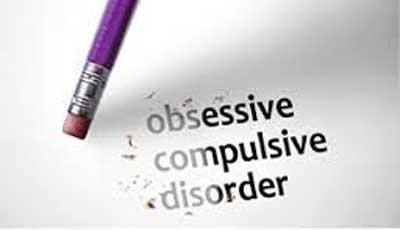- Home
- Editorial
- News
- Practice Guidelines
- Anesthesiology Guidelines
- Cancer Guidelines
- Cardiac Sciences Guidelines
- Critical Care Guidelines
- Dentistry Guidelines
- Dermatology Guidelines
- Diabetes and Endo Guidelines
- Diagnostics Guidelines
- ENT Guidelines
- Featured Practice Guidelines
- Gastroenterology Guidelines
- Geriatrics Guidelines
- Medicine Guidelines
- Nephrology Guidelines
- Neurosciences Guidelines
- Obs and Gynae Guidelines
- Ophthalmology Guidelines
- Orthopaedics Guidelines
- Paediatrics Guidelines
- Psychiatry Guidelines
- Pulmonology Guidelines
- Radiology Guidelines
- Surgery Guidelines
- Urology Guidelines
Fear of guilt - precipitating factor for Obsessive-Compulsive Disorder

Advances in our understanding of the development and persistence of Obsessive-Compulsive Disorder (OCD) have the potential to improve treatment according to a new study by the University of Waterloo.
The study found that fear of guilt evokes feelings of doubt in decision-making, with greater fear of guilt being associated with greater self-reported difficulty making decisions, less satisfaction with the decisions made, and less confidence in those decisions. A person's fear of being guilty of something that they have done or haven't done also results in them wanting more information before making a decision.
"People with OCD have generally been shown in research to have this inflated feeling of responsibility," said Waterloo graduate student and lead researcher on the study, Brenda Chiang. "They often feel that they are going to be responsible for something bad that will happen or that if they fail to do something, they will be responsible for that harm too. So, they naturally have slightly higher levels of fear of guilt making them more susceptible to indecisiveness.
"This indecisiveness leads to difficulty terminating an action as well as evokes doubt as to whether an action was done properly, which leads to repetition of that action."
The study assessed 63 undergraduate students from the University of Waterloo, who were previously identified as having a wide range of trait levels of fear of guilt; from low to high.
"The next step would be to examine this in people who have OCD," said Professor Christine Purdon, co-author of the study. "The current gold standard for treating OCD is Cognitive Behavioral Therapy, which has about a 50 to 60 percent success rate if you include people who drop out because they can't tolerate it or people who decline the treatment because they anticipate that they can't do it.
"We're only getting about half of the people with OCD treated properly, so once we have a better understanding of factors that cause repetition and doubt, we can develop a treatment that addresses a greater number of persons."
For more details click on the link : DOI: 10.1016/j.jocrd.2018.02.001
Christine Purdoncognitive behavioral therapyfearguiltobsessive-compulsive disorderOCDtreatmentUniversity of Waterloo
Next Story
NO DATA FOUND

Disclaimer: This site is primarily intended for healthcare professionals. Any content/information on this website does not replace the advice of medical and/or health professionals and should not be construed as medical/diagnostic advice/endorsement or prescription. Use of this site is subject to our terms of use, privacy policy, advertisement policy. © 2020 Minerva Medical Treatment Pvt Ltd